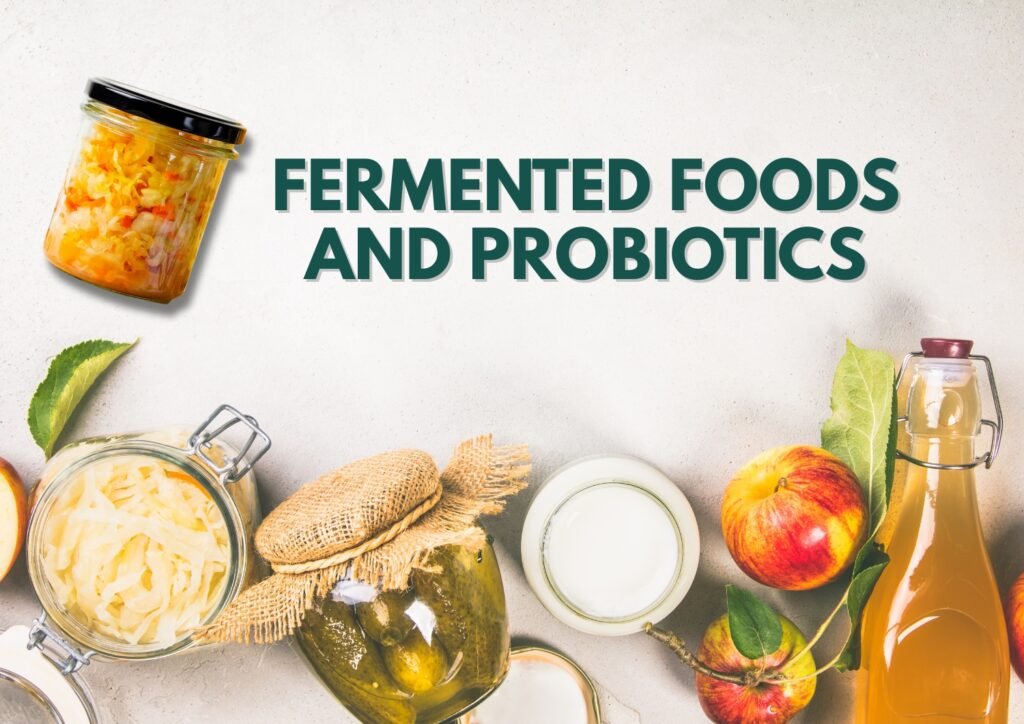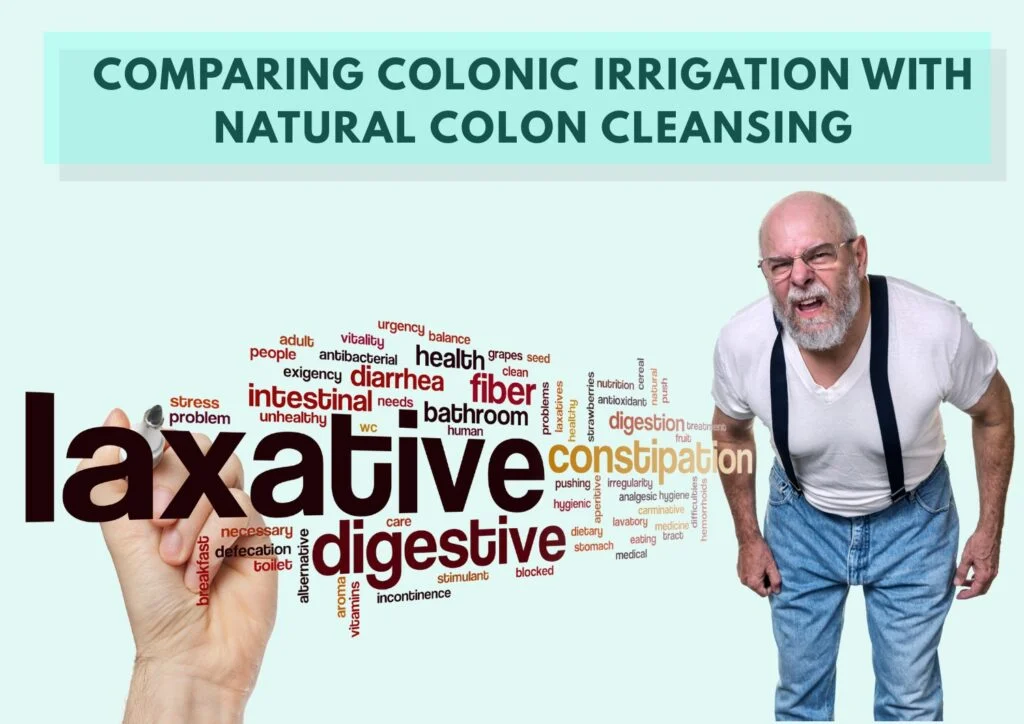Colonic Irrigation for a Deep Colon Cleanse: Separating Wellness Fact from Fiction

Last Updated on July 1, 2025 by Rose Ann
Have you been curious about colonic irrigation after seeing it promoted as a wellness miracle? You’re not alone—this procedure, also called colon hydrotherapy, has gained significant attention as a “deep cleanse” solution. But before you book that appointment, let’s explore what the science actually says about this trend.
Colonic irrigation involves flushing the colon with water to remove waste and supposed toxins. Proponents claim it boosts energy, improves digestion, and promotes overall wellness. However, major medical organizations, including the FDA and American Gastroenterological Association, raise serious concerns about both its safety and effectiveness.
In this comprehensive guide, we’ll examine the facts behind colonic irrigation, including recent FDA warnings and expert opinions from leading gastroenterologists. You’ll discover why your body’s natural detox systems are already incredibly efficient, and learn about evidence-based alternatives that support colon health without the risks.
We’ll also share practical, natural approaches to maintaining digestive wellness—from fiber-rich foods and probiotics to simple lifestyle changes that can make a real difference. Plus, we’ll help you understand when it’s time to consult a healthcare professional about digestive concerns.
Whether you’re dealing with digestive issues or simply want to maintain optimal gut health, this article provides the balanced, research-backed information you need to make informed decisions about your wellbeing.
Understanding Colonic Irrigation: What Actually Happens?
Colonic irrigation, also known as colonics, colon hydrotherapy, or colonic cleansing, involves introducing water (sometimes mixed with herbal solutions) into your colon through the rectum. The goal is to flush out accumulated waste and what practitioners call “toxins.”
During a typical session, which lasts 45-60 minutes, you’ll lie on a table while a practitioner uses specialized equipment to gently introduce and remove water from your colon. Unlike a simple enema that targets the lower portion of your large intestine, colonic irrigation aims to cleanse the entire colon.
Practitioners often promote this procedure based on the concept of “autointoxication”, the idea that undigested waste clings to your colon walls and slowly poisons your body. However, modern medical science has thoroughly debunked this theory. Your colon is remarkably efficient at naturally expelling waste and maintaining its own healthy environment.
Scientific Evidence and FDA Regulation
The Food and Drug Administration takes a cautious stance on colonic irrigation. Here’s what you need to know:
- FDA Classification and Approval: The FDA classifies colonic irrigation systems as medical devices, but importantly, no system has received approval for “routine” colon cleansing to promote general wellness. High-volume procedures using 35 liters or more of water are considered investigational and medically unnecessary for most people.
- Approved Uses Are Limited: Some devices, like the Bio Fluff System and Aqua Cleanse Colonic Irrigation System, have received FDA clearance—but only for bowel preparation before medical procedures like colonoscopies. This clearance doesn’t constitute an endorsement for general wellness or detox purposes.
- Safety Warnings: The FDA has issued warnings about using these devices for “general wellness,” citing risks including bowel perforation, severe infections, and dangerous electrolyte imbalances. They’ve also taken action against clinics making unsubstantiated health claims.
Physicians’ Perspectives
The medical community’s position on colonic irrigation for wellness purposes is remarkably consistent and cautionary.
- Professional Medical Organizations Advise Against It: The American Gastroenterological Association (AGA) and American Medical Association (AMA) both discourage colonic hydrotherapy for non-medical purposes. In their 2022 policy statement, the AGA specifically highlighted risks including electrolyte imbalances and disruption of beneficial gut bacteria.
- Research Shows More Risk Than Benefit: The American Academy of Family Physicians conducted a comprehensive systematic review and found no rigorous evidence supporting health benefits from colonic cleansing. Instead, they documented multiple adverse effects, including deaths in some cases.
- Expert Medical Opinion: Dr. Maged Khalil, a respected gastrointestinal oncologist, emphasizes that “the body’s natural digestive processes are sufficient for maintaining gut health.” He advises caution with water-based cleanses that may cause more harm than good.
Similarly, the renowned MD Anderson Cancer Center warns against colon cleansing, stating clearly that your colon is perfectly capable of self-cleansing and that such procedures may actually cause harm.

Natural Ways to Support Colon Health
Before exploring external cleansing procedures, it’s important to recognize that your body already has an incredibly efficient detox system. The liver, kidneys, intestines, and skin work in harmony to eliminate toxins on a daily basis.
Rather than resorting to colonic irrigation, experts recommend supporting these natural processes through a balanced diet, regular exercise, and adequate hydration. By prioritizing whole, nutrient-dense foods and avoiding highly processed items, you can help your body maintain optimal digestive function without the need for invasive procedures.
Foods That Promote a Healthy Colon
One of the most effective ways to support colon health is to consume a diet rich in dietary fiber. High-fiber foods such as whole grains, legumes, fruits, and vegetables help keep the digestive tract moving smoothly and prevent constipation.
For example, foods like oats, quinoa, brown rice, and whole wheat products add bulk to your stool and aid in regular bowel movements. In addition, fruits like apples (rich in pectin), pears, berries, and leafy greens like spinach and kale provide essential vitamins and antioxidants that support overall gut health.
Fermented Foods and Probiotics
Fermented foods such as yogurt, kefir, sauerkraut, and kimchi are excellent for promoting a healthy balance of gut bacteria. These foods are naturally rich in probiotics—beneficial bacteria that aid digestion and bolster the immune system.
By incorporating probiotic-rich foods into your daily routine, you can help maintain a balanced gut microbiome, which is crucial for proper digestion and may even reduce inflammation in the colon. Studies suggest that a thriving gut flora can improve bowel regularity and protect against conditions like irritable bowel syndrome (IBS).

Hydration: The Simple, Essential Step
Drinking plenty of water is one of the simplest yet most effective ways to keep your colon healthy. Adequate hydration ensures fiber can work effectively in the digestive tract, softening stool and preventing constipation.
Experts recommend drinking at least eight glasses of water daily, and more if you’re increasing your fiber intake. Staying well-hydrated not only supports digestion but also aids in the natural detoxification process, allowing your body to flush out waste products efficiently.
=
Potential Risks and Considerations of Colonic Irrigation
Before considering colonic irrigation, it’s crucial to understand the potential complications:
- Bowel Perforation: The procedure can cause tears in your colon wall, leading to life-threatening infections that require emergency surgery.
- Dangerous Electrolyte Imbalances: Flushing your colon can severely disrupt your body’s delicate electrolyte balance, potentially causing dehydration, heart rhythm problems, and other serious complications.
- Infections: Non-sterile equipment or solutions can introduce harmful bacteria into your colon, leading to serious infections.
- Dependency Issues: Regular use may lead to reliance on the procedure for normal bowel movements, potentially impairing your colon’s natural function.
- Additional Side Effects: Many people experience nausea, vomiting, cramps, dizziness, and abdominal discomfort during or after the procedure.
Natural Ways to Support Your Colon Health
Want to promote optimal digestive health? Focus on these proven strategies that work with your body, not against it.
Embrace Fiber-Rich Foods
One of the most effective ways to support your colon is by eating plenty of dietary fiber. High-fiber foods help keep things moving smoothly through your digestive tract and prevent constipation.
Excellent Fiber Sources Include:
- Whole grains like oats, quinoa, brown rice, and whole wheat products
- Legumes such as beans, lentils, and chickpeas
- Fresh fruits, especially apples (rich in pectin), pears, and berries
- Leafy greens like spinach and kale
- Vegetables such as broccoli, Brussels sprouts, and artichokes
These foods don’t just add bulk to help with regular bowel movements—they also provide essential vitamins, minerals, and antioxidants that support overall gut health.
Include Fermented Foods and Probiotics
Fermented foods are like a gift to your digestive system. They’re naturally rich in probiotics—beneficial bacteria that aid digestion and support your immune system.
Probiotic-Rich Foods to Try:
- Plain yogurt with live cultures
- Kefir (a fermented milk drink)
- Sauerkraut and kimchi
- Miso and tempeh
- Kombucha
Studies suggest that maintaining a thriving gut microbiome through these foods can improve bowel regularity and may even help protect against conditions like irritable bowel syndrome (IBS).
Stay Well-Hydrated
This might be the simplest yet most effective colon health tip: drink plenty of water. Adequate hydration ensures that fiber can work effectively in your digestive tract, softening stool and preventing constipation.
Aim for at least eight glasses of water daily, and increase this amount if you’re boosting your fiber intake. Proper hydration supports your body’s natural detoxification processes, allowing efficient waste elimination without any external intervention.
Get Moving with Regular Exercise
Physical activity is incredibly beneficial for digestive health. Regular movement stimulates intestinal motility and helps prevent constipation. You don’t need intense workouts—gentle activities like walking, swimming, or yoga can make a significant difference.
Even a 20-30 minute daily walk can help keep your digestive system functioning optimally while providing numerous other health benefits.
Manage Stress Effectively
Chronic stress can significantly impact your digestive health. Your gut and brain are closely connected, and stress can disrupt normal digestive processes.
Stress-Reduction Techniques That Help:
- Mindfulness meditation
- Deep breathing exercises
- Gentle yoga or tai chi
- Regular sleep schedule
- Engaging in hobbies you enjoy
Alternatives to Colonic Irrigation
For those who are curious about colon cleansing but wary of the potential risks associated with colonic irrigation, several gentle alternatives exist. These natural approaches not only support digestion but also help maintain a balanced gut microbiome without the risks associated with invasive procedures.
Fibre Intake
Increasing your intake of fiber-rich foods, staying well-hydrated, and including fermented foods in your diet are all proven strategies to promote regular bowel movements and overall gut health.
Lifestyle Modifications
Beyond diet, lifestyle modifications can play a significant role in maintaining colon health. Regular physical activity, for instance, stimulates intestinal motility and can help prevent constipation. Activities like walking, jogging, or even yoga can be beneficial for digestion.
Additionally, stress management techniques such as mindfulness and meditation have been shown to positively influence gut health by reducing inflammation and promoting overall well-being. By integrating these healthy habits into your daily routine, you can support your digestive system in a sustainable, natural way.
When to Consider Medical Advice
While many natural methods can help maintain a healthy colon, there are times when professional medical advice is warranted. If you experience persistent gastrointestinal symptoms such as severe abdominal pain, prolonged constipation, or unexplained weight loss, it’s important to consult a healthcare professional.
These symptoms could be indicative of underlying conditions that require targeted treatment. A qualified gastroenterologist can provide a thorough evaluation and recommend appropriate interventions, whether that involves dietary modifications, medication, or in rare cases, medically supervised colon cleansing.

Comparing Colonic Irrigation with Natural Colon Cleansing
A significant body of research has compared colonic irrigation with traditional oral bowel preparations, particularly in the context of colonoscopy.
Efficacy and Patient Satisfaction
Studies have demonstrated that while colonic irrigation can achieve acceptable levels of bowel cleansing, it does not necessarily offer superior outcomes compared to less invasive methods such as polyethylene glycol (PEG) solutions combined with dietary modifications.
Cost and Accessibility
When individuals search for “colon cleanse near me,” they are often met with a variety of options ranging from spa-like colonic treatments to over-the-counter supplements. However, it is worth considering the cost and accessibility of these treatments. Invasive colon cleansing procedures, which require specialized equipment and trained personnel, can be expensive and may not be covered by insurance.
On the other hand, natural approaches—such as incorporating more fiber, fermented foods, and hydration into your routine—are not only cost-effective but also promote long-term health benefits without the financial and physical risks associated with colonic irrigation.
The Key Takeaway
While the promise of a quick digestive “reset” might seem appealing, the scientific evidence simply doesn’t support colonic irrigation as a beneficial wellness practice. The risks—including serious complications like bowel perforation and dangerous electrolyte imbalances—far outweigh any unproven benefits.
Your body has evolved sophisticated systems for maintaining digestive health and eliminating waste. Rather than disrupting these natural processes with potentially dangerous procedures, focus on supporting them through proven methods: eating a fiber-rich diet, staying hydrated, exercising regularly, managing stress, and including probiotic foods in your routine.
These natural approaches support optimal colon health and enhance overall well—being without the risks, costs, or dependency issues associated with colonic irrigation.
Ready to take a natural approach to digestive wellness? Have you tried incorporating more fiber-rich foods or fermented foods into your diet? What changes have you noticed in your digestive health? Share your experiences and questions in the comments below—we’d love to hear from you!
Disclaimer
The content provided on MySeniors.World is for informational purposes only and is not intended as either financial or medical advice. Always consult a qualified professional before making any investment or health-related decisions.
Posts may contain affiliate links, meaning we earn a commission – at no additional cost to you, if you click through and make a purchase. Your support helps us continue providing valuable content.
FAQ: Colonic Irrigation
- Is colonic irrigation safe for mature adults?
- Medical experts strongly advise against colonic irrigation for wellness purposes at any age. The risks, including bowel perforation, electrolyte imbalances, and infections, can be particularly serious for older adults who may have underlying health conditions or take medications that increase complications.
- Can colonic irrigation help with chronic constipation?
- No, colonic irrigation is not recommended for treating constipation. In fact, regular use can actually worsen the problem by making your colon dependent on external assistance for normal function. Safe, effective treatments for constipation include increasing fiber intake, drinking more water, exercising regularly, and consulting with a healthcare provider for persistent issues.
- What’s the difference between colonic irrigation and an enema?
- Enemas target only the lower portion of your large intestine and use smaller amounts of fluid. They’re sometimes medically prescribed for specific conditions. Colonic irrigation attempts to flush the entire colon using much larger volumes of water and is not medically necessary for most people.
- Are there any natural supplements that can replace colonic irrigation?
- While no supplement can “replace” colonic irrigation (because it’s not medically necessary), natural fiber supplements like psyllium husk, methylcellulose, or wheat dextrin can help support regular bowel movements when combined with adequate water intake. Always consult your doctor before starting any new supplements.
- How long does it take to see results from natural colon health approaches?
- Most people notice improvements in regularity and digestive comfort within 1-2 weeks of increasing fiber intake, improving hydration, and adding regular exercise. Probiotic foods may take several weeks to show benefits. The key is consistency and patience—natural approaches work gradually but provide lasting benefits.
- Can I do colonic irrigation if I have digestive issues like IBS or diverticulitis?
- Absolutely not without explicit medical supervision. People with digestive conditions face even higher risks from colonic irrigation. If you have IBS, diverticulitis, or other digestive issues, work with a gastroenterologist to develop a safe, appropriate treatment plan.
- What should I do if I’ve already had colonic irrigation sessions?
- If you’ve had colonic irrigation without complications, focus on supporting your digestive health naturally going forward. If you experienced any concerning symptoms during or after the procedure, contact your healthcare provider. Most importantly, avoid future sessions and concentrate on proven, safe methods for maintaining colon health.
References:
U.S. Food and Drug Administration. (2023). “Medical Devices for Colonic Irrigation.” FDA Safety Communications. U.S. Food and Drug Administration
American Gastroenterological Association. (2022). “Position Statement on Colonic Hydrotherapy for Non-Medical Purposes.” AGA Clinical Guidance. American Gastroenterological Association
American Academy of Family Physicians. (2023). “Systematic Review of Colonic Cleansing: Evidence and Safety Considerations.” American Family Physician. AAFP
MD Anderson Cancer Center. (2023). “Colon Cleansing: Separating Fact from Fiction.” Patient Education Resources. MD Anderson Cancer Center
Khalil, M. (2023). “Natural Digestive Health: A Gastroenterologist’s Perspective.” Digestive Health – Functional Medicine Practitioner. Dr. Khalil Wellness
American Medical Association. (2022). “AMA Policies.” American Medical Association
National Institute of Diabetes and Digestive and Kidney Diseases. (2023). “Health Tips for Older Adults.” NIH Patient Resources. NIDDK





